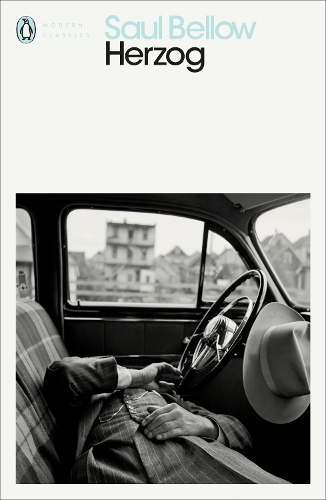
Herzog
(Paperback)
Available Formats
Publishing Details
Herzog
By (Author) Saul Bellow
Introduction by Malcolm Bradbury
Penguin Books Ltd
Penguin Classics
7th March 2019
26th April 2001
United Kingdom
Classifications
General
Fiction
813.52
Physical Properties
Paperback
368
Width 130mm, Height 198mm, Spine 20mm
274g
Description
Herzog is alone, now that Madeleine has left him for his best friend. Solitary, in a crumbling house which he shares with rats, he is buffeted by a whirlwind of mental activity. People rumoured that his mind had collapsed. But was it true Locked for days in the custody of his rambling memories, Herzog scrawls frantic letters which he never mails. His mind buzzes with conundrums and polemics, writing in a spectacular intellectual labyrinth. Is he crazy, or is he a genius..
Reviews
The character of Herzog is Bellow's grandest creation, and his mind is as rich as the mind of any character in American literature -- Philip Roth
Spectacular ... surely Bellow's greatest novel -- Malcolm Bradbury
A writer of genius * Sunday Times *
Nobody else has ever sat down and wallowed to this extent in his own life, with full art -- John Berryman
Author Bio
Saul Bellow was born in 1915. He published his first novel, The Dangling Man, in 1944; this was followed, in 1947, by The Victim. In 1948 a Guggenheim Fellowship enabled Bellow to travel to Paris, where he wrote The Adventures of Augie March, published in 1953. Henderson The Rain King (1959) brought Bellow worldwide fame, and in 1964, his best-known novel, Herzog, was published and immediately lauded as a masterpiece, 'a well-nigh faultless novel' (New Yorker). Bellow's dazzling career as a novelist was celebrated during his lifetime with an unprecedented array of literary prizes and awards, including the Pulitzer Prize, three National Book Awards, and the Gold Medal for the Novel. In 1976 he was awarded a Nobel Prize 'for the human understanding and subtle analysis of contemporary culture that are combined in his work'. His death in 2005 was met with tribute from writers and critics around the world, including James Wood, who praised 'the beauty of this writing, its music, its high lyricism, its firm but luxurious pleasure in language itself'.
